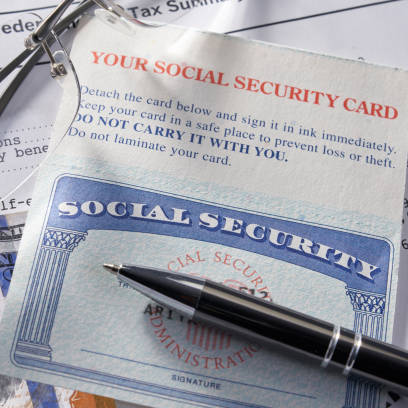Three Social Security errors that retirees should avoid at all costs

Social Security is the largest federal program in the US. Benefit payments are made to almost 66 million Americans each month. This year, the amount will total more than $1 trillion. The fact that 182 million more Americans today hold employment that qualifies for Social Security indicates that they will likely get payments in the future.
Like many federal programs, Social Security has complex guidelines and restrictions that might be difficult to understand. The following three mistakes could cost retirees and their spouses a lot in Social Security benefits.
1. Making an early claim for Social Security retirement benefits (or too late)
Your average income during your 35 highest-earning years of employment and the age at which you start receiving Social Security benefits determines how much money you will get each month in Social Security payments.
The age at which you become eligible for Social Security is 62, even if you are still working. But until you reach full retirement age (FRA), you are not qualified to receive the full benefit–also known as the primary insurance amount (PIA). If you file for your benefits before FRA, your benefits will be permanently reduced by up to 30%; the exact amount is based on how soon you receive your first check.
The FRA for those born after 1942 is displayed in the chart below.
Year of Birth | Full (Normal) Retirement Age |
1943 to 1954 | 66 |
1955 | 66 and 2 months |
1956 | 66 and 4 months |
1957 | 66 and 6 months |
1958 | 66 and 8 months |
1959 | 66 and 10 months |
1960 and later | 67 |
If you postpone Social Security past your FRA, it will result in a permanent 8% annual increase in payments. However, these delayed retirement credits cease to accrue at age 70. In other words, retired workers can optimize their Social Security payments by delaying their benefit claims until they are 70 years old, but further delays past age 70 are pointless.
2. Ignorance of Social Security spousal benefits
The spouse of a retired worker may also be qualified for Social Security based on that worker’s wages, although spousal benefits are calculated somewhat differently. The amount that spouses receive each month varies based on the age at which they apply for benefits. Still, most importantly, they are eligible to receive up to 50% of their retired spouse’s PIA.
Again, eligibility begins at age 62. Spousal benefits are permanently lowered if spouses file for Social Security benefits before FRA, just like they are for retired employees. However, there is no credit given in this instance for deferring benefits past FRA. Accordingly, nonworking spouses can maximize their Social Security benefits by beginning to receive payments the month after they turn FRA.
Of course, not everyone has the financial means to wait until FRA. This spousal benefits calculator demonstrates the impact of early retirement on Social Security payments.
3. Ignoring the deadline to enroll in Medicare
Medicare is a federally funded health insurance program for anyone 65 and older. Medicare Part A (inpatient insurance) and Medicare Part B (outpatient insurance) are both automatically covered by Social Security recipients. Their coverage normally begins on the first day of the month after they reach 65. However, seniors 65 years or older who have not yet filed for Social Security must submit this Medicare application.
In that case, the Initial Enrollment Period (IEP) begins three months before you turn 65 and concludes three months after that month. For instance, if your 65th birthday was in June 2023, your IEP would span from the beginning of March 2023 to the end of September 2023.
Medicare Part A is free for seniors who have paid Medicare taxes for at least ten years. However, you must pay a premium for Part B, which increases if you sign up later. If you miss your IEP, you usually wait until the following General Enrollment Period.
Additionally, you’ll be responsible for paying a 10% monthly late enrollment penalty (based on the average Medicare Part B premium) for each full year you failed to enroll. You must also continue to pay the penalty as long as you are a Medicare Part B enrollee.
Contact Information:
Email: [email protected]
Phone: 8889193252
Popular posts

How to Deal with...
It's inevitable for prices...

Maximizing Your Social Security...
Maximizing Your Social Security...
Free Retirement Benefits Analysis
Federal Retirement benefits are complex. Not having all of the right answers can cost you thousands of dollars a year in lost retirement income. Don’t risk going it alone. Request your complimentary benefit analysis today. Get more from your benefits.
I want more
